PORT-AU-PRINCE, Haiti - Hundreds of 82nd Airborne Division troops from Fort Bragg, N.C., arrived here overnight in the first wave of putting a substantial U.S. military relief effort in place in the wake of this week's devastating earthquake.
As many as 3,500 Soldiers are expected to be on the ground here in just a few short days, as the military finds itself caught somewhere in the middle of finding its feet and moving out to help the tens of thousands left with nothing after the Jan. 12 earthquake.
Air Force C-17s started hauling troops and equipment from the 1st Squadron, 73rd Cavalry Regiment yesterday, with the rest of the 800 or so Soldiers from the 2nd Brigade Combat Team being delivered by ongoing flights through the night.
The planes were packed, making use of every square inch of space. Soldiers stacked in with military vehicles, water and other equipment and supplies. With the airport here maxed out on its ability to manage the number of flights coming in and out, officials wanted to waste neither time or space.
"Air planes are stacked up the 'wazoo' up there trying to get down here," one colonel said just before his troops exited the C17.
The military flights were delayed somewhat yesterday simply because of the limited capacity of the airport. It is, however, running 24-hour operations with flights coming in from around the world as nations reach out to one of the globe's poorest countries.
Army Maj. Larry Jordan, with 1st Squadron, 73rd Infantry Regiment, was on the ground yesterday surveying where the incoming troops would go. Most of the troops here were sleeping under the stars. A handful of tents were scattered about. For the most part, there is no running water or electricity.
Right now, the troops are tasked with paving the way for the massive amounts of humanitarian aid coming to reach the communities safely. They provide airport security and a detachment watches over the embassy.
Local people waved at the military helicopters flying over the city today. Acres of tin-roofed shanties were flattened. Toward the mountains, closer to the main impact of the quake, larger buildings had collapsed. Most of the houses are built near or connected to each other, so entire blocks were collectively crushed.
"The devastation is absolutely amazing," Jordan said.
Many survivors have set up camps out in the open, football-field-sized areas. Brightly colored tarps provide cover for them and the few personal items they were able to recover from the wreckage.
Still, Jordan said that he did not see a lot of crime or looting in the neighborhoods he visited. He also said several Haitian police, both local and national, were out in the streets.
"It was not the wild, wild west. There were not gangs of lawless machete wielders running around all over the place," he said.
Jordan did see a lot of people trying to continue clearing the buildings, removing rubble, and cleaning the streets.
In some places, Jordan said, he was the first person in uniform providing a sense of hope for relief. Today, the troops are moving out into forward operating bases in the city. Once their bases are established, they will begin moving into the cities to help set up the security to deliver humanitarian aid, officials said.
Related Links:
U.S. Southern Command on Twitter
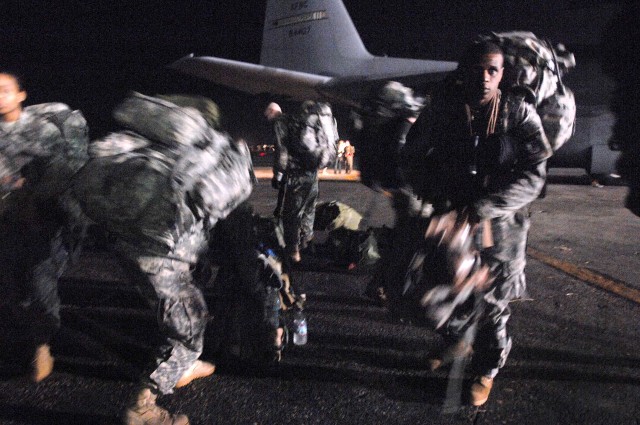
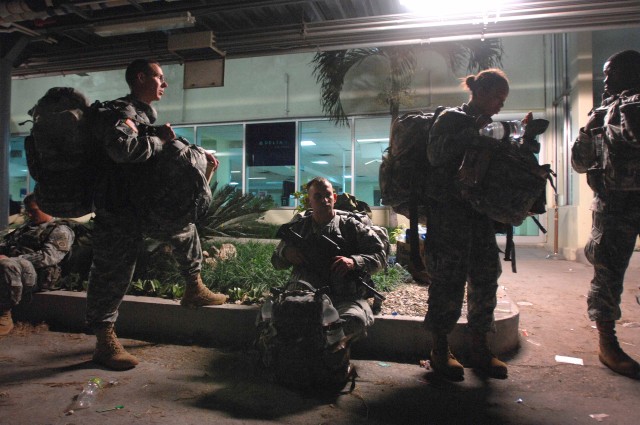
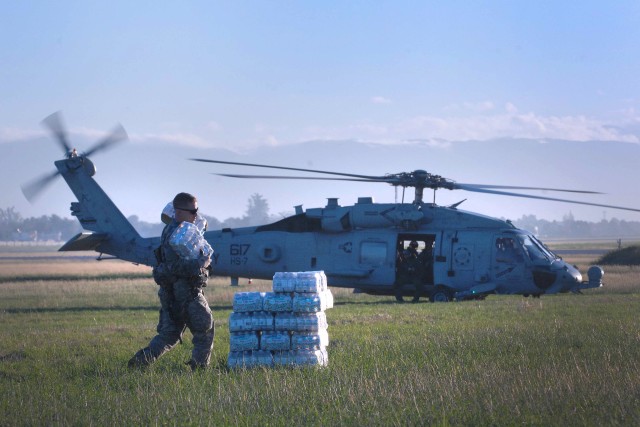



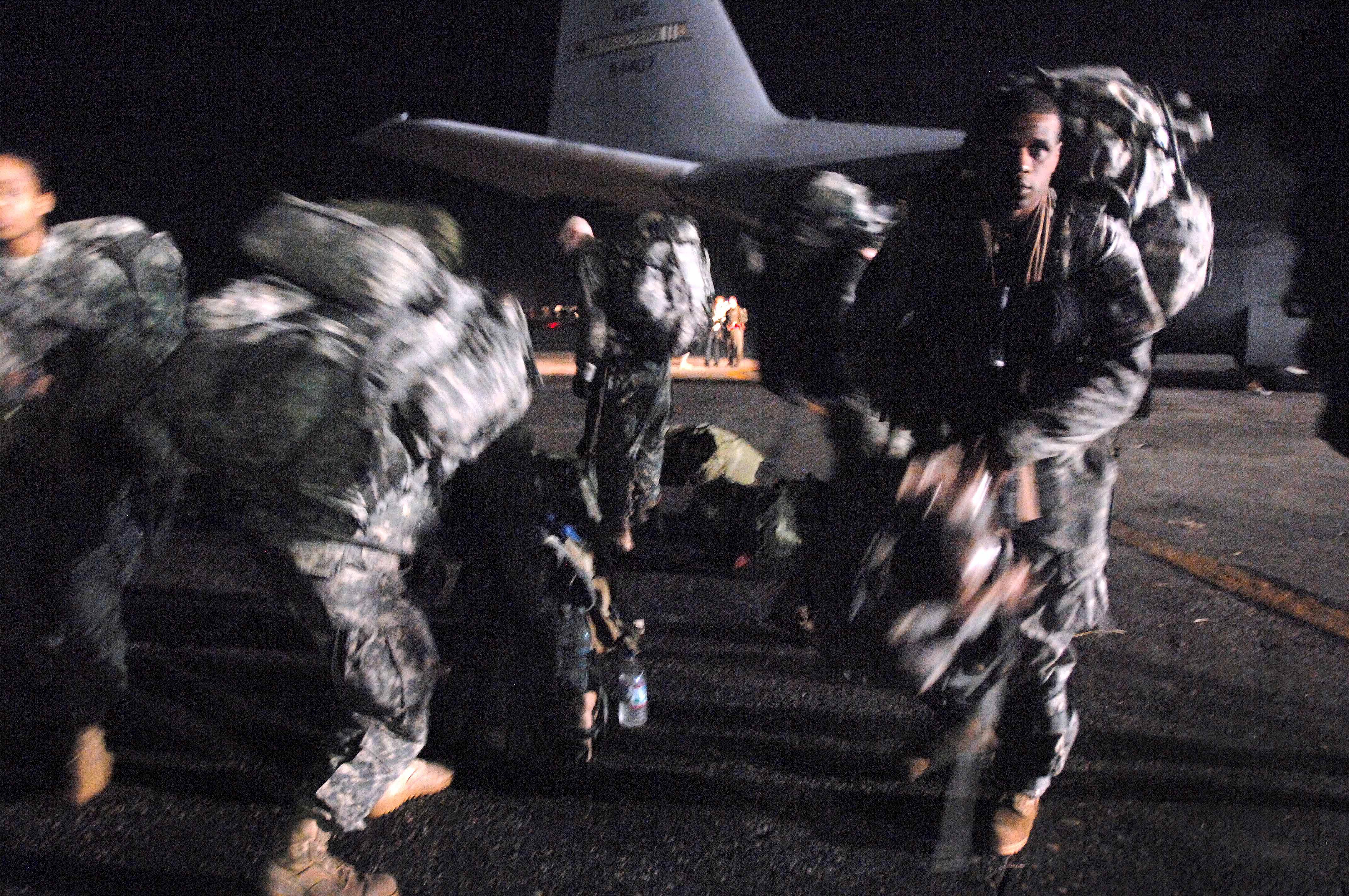
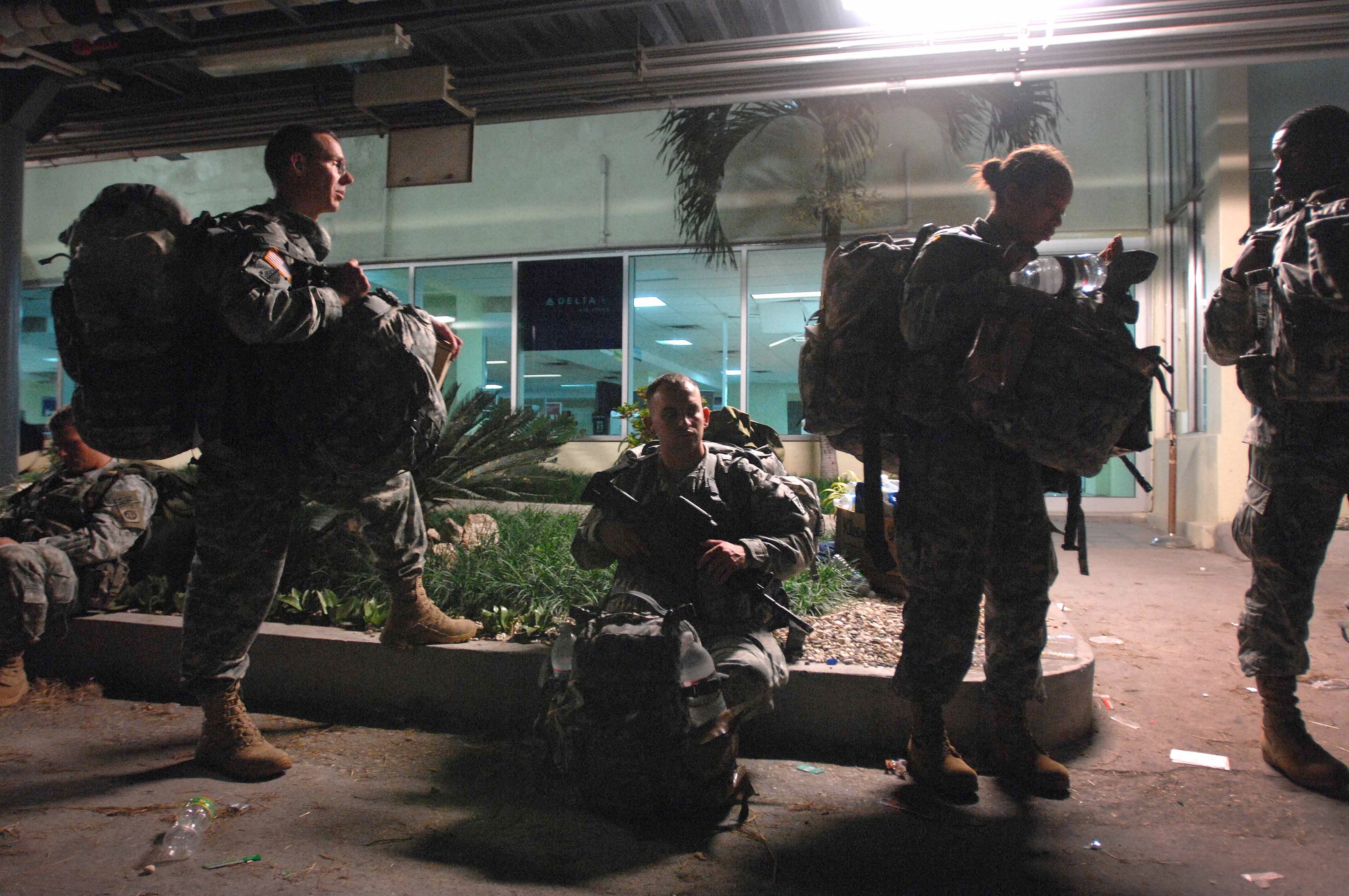
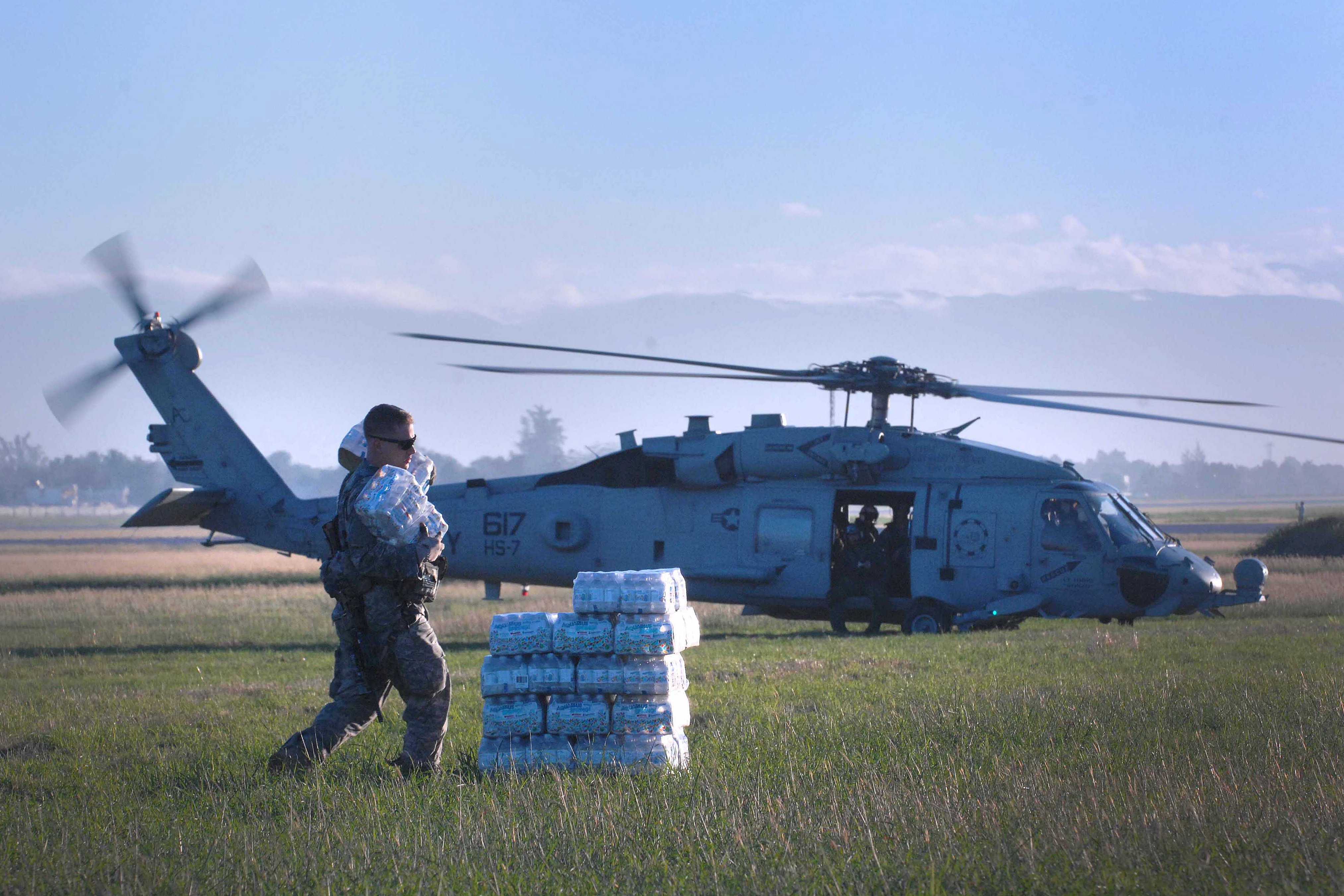


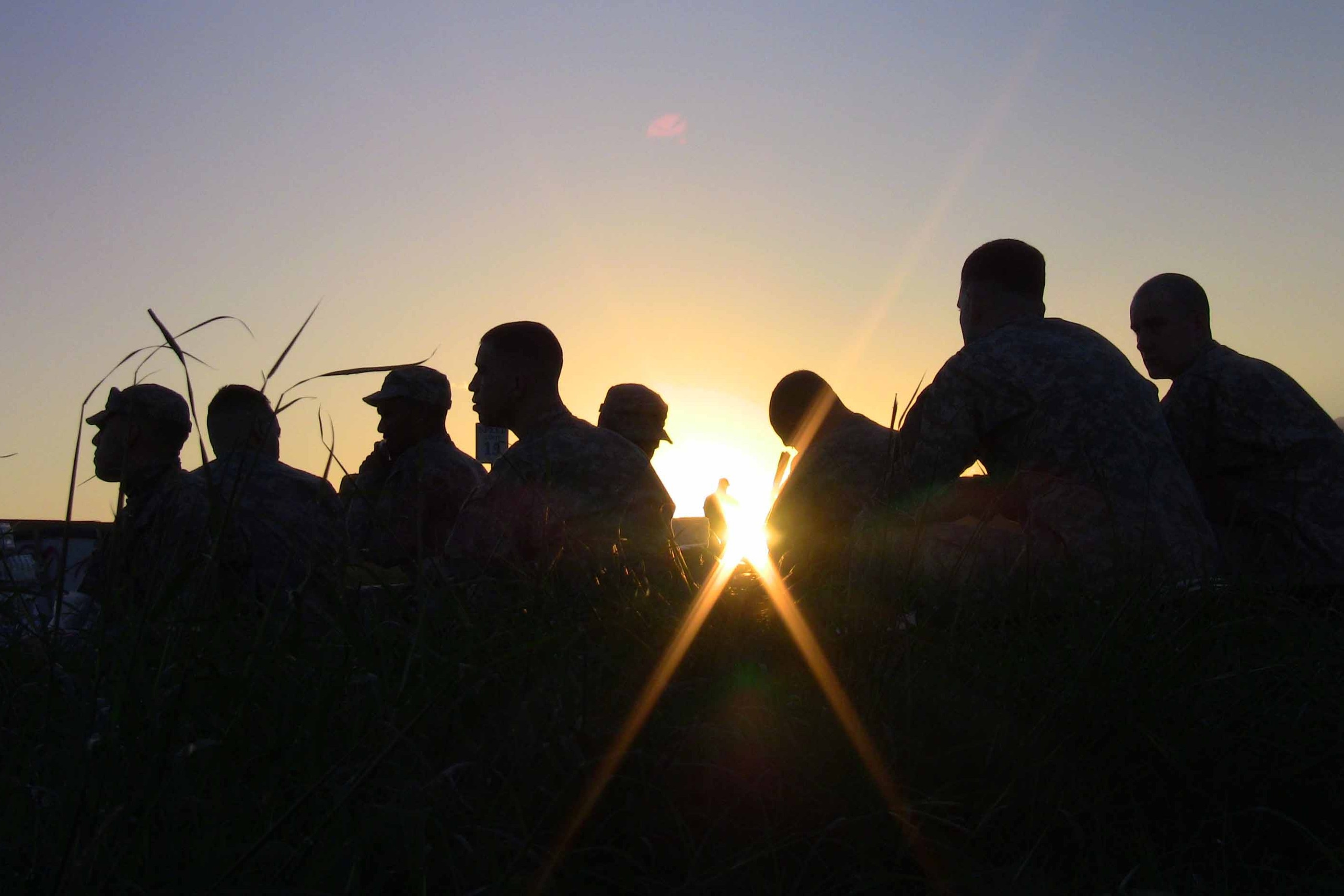
Social Sharing